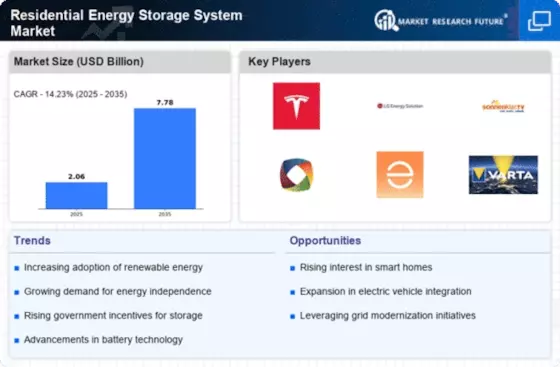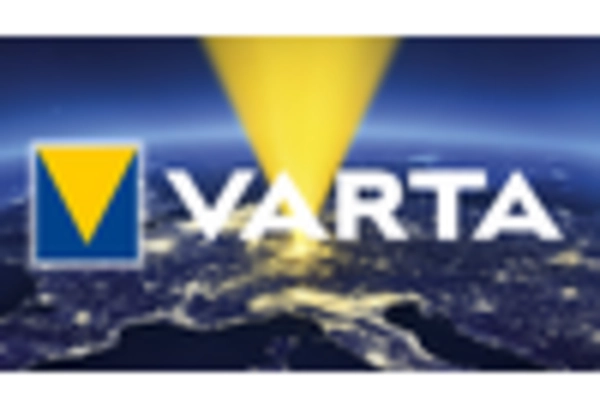Market Trends
Key Emerging Trends in the Europe Residential Energy Storage System Market
The European residential energy storage system market has witnessed significant growth in recent years, driven by several key market trends. One prominent trend is the increasing adoption of renewable energy sources, such as solar and wind power, in residential settings. As more households seek to reduce their reliance on traditional fossil fuels and lower their carbon footprint, the demand for energy storage solutions has surged. Residential energy storage systems enable homeowners to store excess energy generated by their renewable energy systems during periods of high production and use it later when energy demand is higher or when renewable energy generation is low.
Another important trend shaping the European residential energy storage system market is the growing interest in energy independence and resilience. With concerns about grid reliability and the impact of natural disasters on energy supply, many homeowners are investing in energy storage systems to ensure uninterrupted power supply during outages. This trend has been further fueled by advancements in battery technology, making residential energy storage systems more affordable, efficient, and reliable.
Government incentives and supportive policies have also played a significant role in driving the growth of the residential energy storage market in Europe. Many European countries offer subsidies, tax incentives, and feed-in tariffs to encourage the adoption of renewable energy and energy storage technologies. These incentives not only help offset the upfront costs of installing energy storage systems but also provide financial incentives for homeowners to participate in energy markets through demand response programs or by selling excess energy back to the grid.
Moreover, technological advancements and innovation in energy storage technologies have led to the development of more advanced and efficient residential energy storage systems. Lithium-ion batteries, for example, have become the dominant technology in the residential energy storage market due to their high energy density, long cycle life, and declining costs. Additionally, the emergence of smart energy management systems and software solutions enables homeowners to optimize energy usage, maximize self-consumption of renewable energy, and reduce energy bills.
The COVID-19 pandemic has also influenced market trends in the European residential energy storage system market. The pandemic has heightened awareness of the importance of resilience and self-sufficiency, leading to an increased interest in energy storage solutions among homeowners. Furthermore, lockdown measures and remote work arrangements have resulted in changes in energy consumption patterns, with more households seeking to optimize their energy usage and reduce costs.
Looking ahead, the European residential energy storage system market is expected to continue its rapid growth trajectory, driven by ongoing technological advancements, supportive government policies, and increasing consumer awareness and demand for energy independence and sustainability. However, challenges such as regulatory uncertainties, grid integration issues, and supply chain constraints could potentially hinder market growth. Nevertheless, with the right policies and investments, the residential energy storage market in Europe holds immense potential to transform the way energy is consumed, generated, and managed in households across the continent.



















Leave a Comment